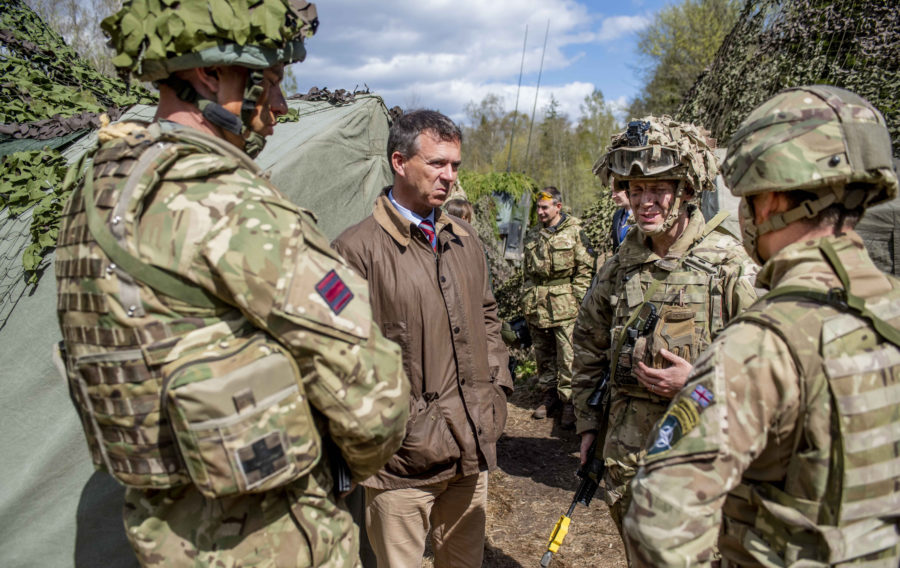
Armed Forces Minister Mark Lancaster witnessed the depth and breadth of the UK’s longstanding defence relationship with Estonia first-hand after his recent visit with deployed UK personnel.
The Minister visited Royal Air Force Typhoons patrolling Baltic skies as part of the Alliance’s Baltic Air Policing mission, met with British Army personnel contributing to the NATO enhanced Forward Presence (eFP) battlegroup and flew in one of the Wildcat helicopters recently deployed to Estonia alongside Apache helicopters as part of the UK’s recent uplift in military assets.
On his visit, the Armed Forces Minister also had the chance to witness the Estonian Defence Forces and NATO soldiers training together on Exercise Spring Storm, a major Estonian-led exercise featuring 10,000 personnel. Soldiers from France joined the King’s Royal Hussars and Estonian troops as part of UK-led eFP battlegroup.
Mr Lancaster also met with Estonian defence minister Juri Lurik and the Commander of the Estonian Defence Forces, Major General Martin Herem to discuss the enduring UK-Estonian defence relationship.
The UK’s leading role in NATO and its support to the Baltic region will be further bolstered with the arrival of HMS Westminster as part of the NATO Standing Maritime Group 1. Further Royal Navy deployments will take place this summer during Baltic Protector, a Joint Expeditionary Force (JEF) deployment that will see some 3,000 troops and 20 vessels from JEF partner nations exercise with each other in the region.
Mr Lancaster said: “The blue, black and white of Estonian flag is said to represent the Baltic sea, its forest soil and its open skies. Our commitment to Estonia is resolute and this year our sailors, soldiers and airmen will work side by side with our Estonian allies providing vital deterrence and reassurance at sea, on land and in the sky.”
image © Crown Copyright
If you would like to join our community and read more articles like this then please click here.







